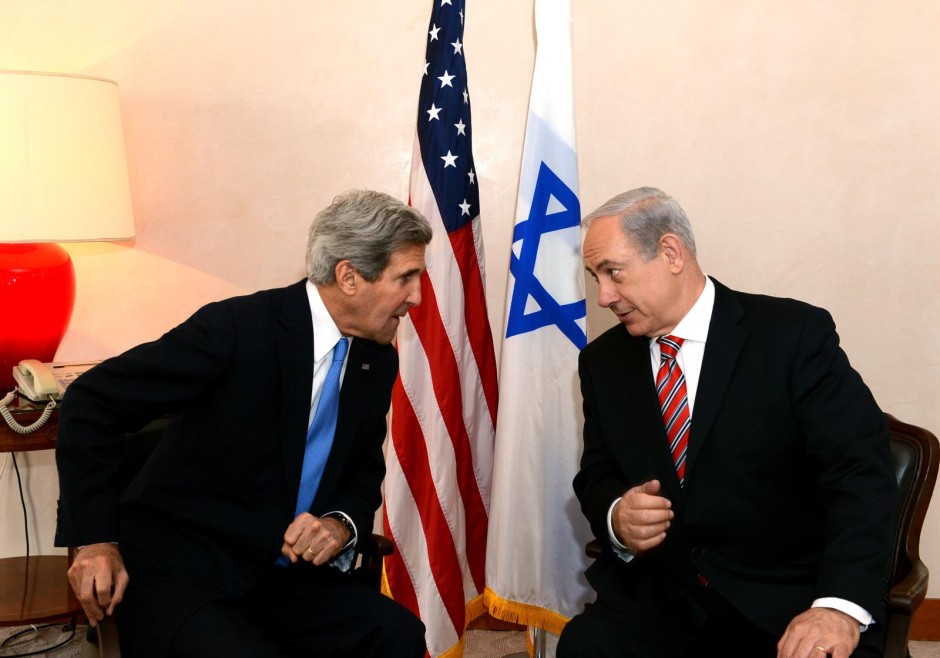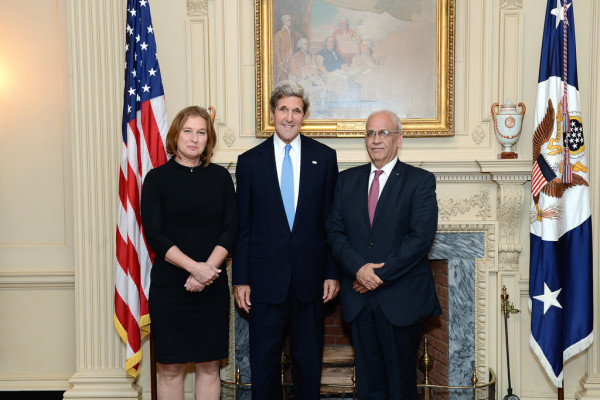Let’s be realistic.
The American-brokered Middle East peace talks, revived late last July by U.S. Secretary of State John Kerry amid an aura of cautious optimism, are as good as dead, having crumbled more than three weeks before the April 29 expiry date.
- The talks had been faltering long before they broke down at the end of March in a welter of mutual finger-pointing and acrimony. Once it was clear that yet another attempt at peacemaking had hit a brick wall, Israel and the Palestinian Authority rushed in to play the blame game.
Yet as Kerry suggested, both sides bear responsibility for “unhelpful actions” that undermined the talks.
Violating its agreement with the Palestinian Authority, Israel failed to release the fourth and final batch of Palestinian prisoners. And in an attempt to create a crisis atmosphere, the Israel Lands Authority re-issued tenders for the construction of 708 apartment flats in Gilo, a neighborhood in eastern Jerusalem annexed by Israel in 1967.
No less a person than Israel’s chief negotiator, Justice Minister Tzipi Livni, accused Housing Minister Uri Ariel — an ardent opponent of a two-state solution who’s responsible for the Israel Lands Authority — of deliberately sabotaging the talks by publishing the tenders at a particularly fraught moment.
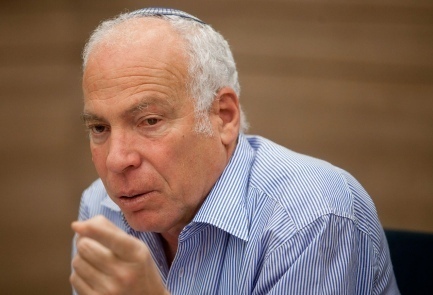
By way of response, the Palestinians applied for membership in 15 international conventions and treaties, in contravention of a promise not to take such a unilateral step. The president of the Palestinian Authority, Mahmoud Abbas, refused to back down, saying he would rather be a “martyr” than cancel the applications.
Although Kerry blamed both Israel and the Palestinian Authority for the breakdown, he suggested that the precipitating event that led to the collapse was Israel’s announcement that yet more flats would be built in Gilo.
“Poof, that was sort of the moment,” he observed, in an implicit critique of Israel.
Surprised by Kerry’s candid appraisal, Israeli Foreign Minister Avidgor Lieberman, a settler himself and a skeptic of peace with the Palestinians, said he was “deeply disappointed” by his comment.

Since then, the situation has gone from bad to worse.
Israeli Prime Minister Benjamin Netanyahu has banned ministerial-level contacts with the Palestinians except in security matters, halted the monthly transfer of tax revenues collected for the Palestinian Authority and delayed plans to implement Palestinian agricultural and housing projects in two-thirds of the West Bank Israel fully controls.
The Palestinian Authority, for its part, has issued a list of preconditions for resuming the talks, demands that Israel has dismissed categorically. One of the demands, the establishment of a Palestinian state along the pre-1967 armistice lines, has been previously stated. Still another demand, the granting of Israeli citizenship to 15,000 West Bank Palestinians under a family reunification program, appears to be new.
On April 11, the Palestinians upped the ante by applying for membership in yet another international organization, the Geneva Conventions.
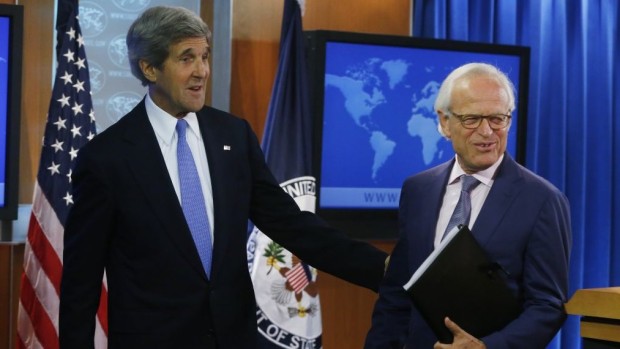
In light of these developments, Kerry’s deputy, Martin Indyk, the former U.S. ambassador to Israel, left the region. His departure was an unmistakable sign that this impasse dooms the talks — which were originally designed to produce a comprehensive accord in nine months but which were scaled back in favor of a non-binding framework accord on core issues such as final borders, Israeli settlements in the West Bank, the Palestinian refugee issue and the status of eastern Jerusalem.
Negotiations broke down after Israel claimed it was on the brink of green lighting an agreement to extend the talks into 2015. Under the supposed accord, Israel would have released all the prisoners, plus an additional 400 Palestinians, and act with restraint on settlement building in the West Bank. As part of the deal, the United States would have released Jonathan Pollard, the American intelligence officer convicted of spying for Israel.
In reality, the talks were already doomed, given the profound level of mutual mistrust, as Kerry acknowledged in mid-March, and the yawning gap in the respective positions of Israel and the Palestinian Authority.
Israel’s chief demands were clear. Recognition of Israel as a Jewish state. An Israeli military presence along the Jordan River. Stringent security arrangements. Retention of settlement blocs near Jerusalem and Tel Aviv, encompassing at least 80 percent of Jewish settlers. (“Of course, some of the settlements won’t be part of the deal, everybody understands that,” said Netanyahu, referring to settlements he’s apparently willing to evacuate).
The Palestinians flaunted their own red lines — a full Israeli withdrawal from the West Bank, recognition of East Jerusalem as the Palestinian capital and a “just and agreed upon” solution to the refugee issue.
Countering Israeli allegations that the Palestinians did not make any concessions during the talks, Abbas told Israeli students that they are ready for land swaps in exchange for territory in the West Bank Israel annexes, ready for a demilitarized state, ready to accept a third-party international force to secure areas Israel gives up and ready to find a solution to the refugee problem that is also fair and acceptable to Israel.
In addition, the Palestinians have expressed readiness to build a state in only 22 percent of historic Palestine (the West Bank and the Gaza Strip), a concession of historic proportions.
However, the Palestinian leadership, having officially recognized Israel in 1993 during the Oslo process, is not prepared to recognize Israel as a Jewish state. Mohammed Ishtayeh, Abbas’ aide, has said that this is impossible for two reasons. It would, he claims, envelop the refugee issue in a tangle of restrictions and pave the way for the expulsion of Israel’s Arab minority.
Interestingly enough, Kerry, who once supported Israel’s demand for recognition as a Jewish state, has shifted his position. On March 14, he said that this issue should not be a significant factor: “I think it’s a mistake for some people to be, you know, raising it again and again as the critical decider of their attitude toward the possibility of … peace.”
Netanyahu and Defence Minister Moshe Yaalon, among others in the Israeli cabinet, vehemently disagree with Kerry’s assessment. They maintain that a peace agreement with the Palestinians will be unreachable unless the Palestinians recognize Israel as a Jewish state.
Israel’s demand is not unreasonable, and the Palestinians will eventually have to come to terms with it, provided core issues are resolved. But at this juncture, there are still “very significant” gaps, as Kerry pointed out recently.

These gaps exist because Netanyahu’s positions are “a vast distance from what everybody understands is the basis on which an accord can be reached,” Ehud Olmert, Israel’s former prime minister, commented in February.
Olmert, who almost succeeded in hammering out a deal with Abbas in 2008, is hardly a lone voice in the wilderness. When he was Israel’s defence minister in Netanyahu’s cabinet, Ehud Barak famously asserted that the Netanyahu government is incapable of making peace with the Palestinians. This raises the very pertinent question whether this Israeli government is or can be a true partner in peace.
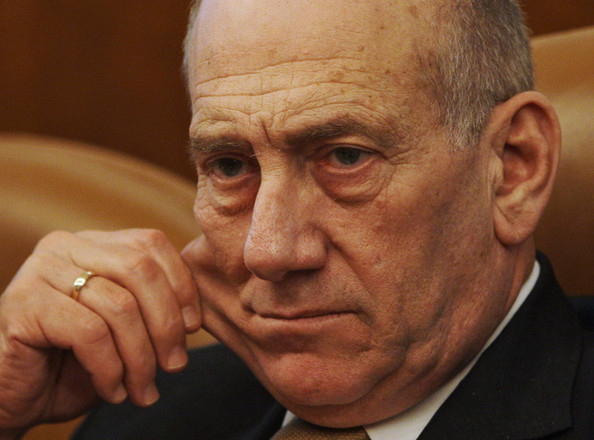
Netanyahu may be a pragmatist in certain respects, having gradually moved away from a hardline stance on the Arab-Israeli conflict. But he is certainly not as flexible on territorial issues as Olmert.
Nor can one be sure that Netanyahu’s convictions are sound. He claims, for example, that Israel cannot defend its eastern border without controlling the Jordan Valley. Meir Dagan, the former director of the Mossad, Israel’s external intelligence agency, begs to differ. According to Dagan, Netanyahu’s argument is a “manipulative use of security issues” for political ends.
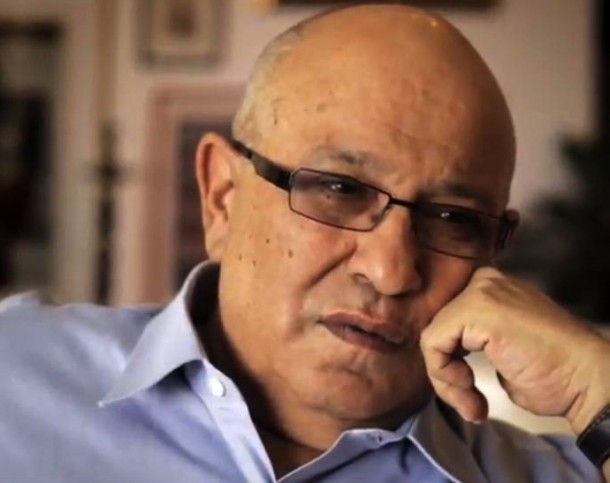
More importantly, Netanyahu presides over a government that covets land and settlements more than peace and prefers conflict management to conflict resolution.
Since the start of the peace talks last summer, Israel has expanded a succession of settlements in the West Bank, making a virtue out of unilateralism, which has been a pillar of Israeli policy since the Six Day War.
And there is something else to consider. Netanyahu’s right-wing Likud party, unlike Netanyahu himself, has not even endorsed the concept of two states for two people, a necessity for peaceful coexistence.
Kerry, clearly, is fed up with the lack of progress. As he said last week, “There are limits to the amount of time and effort that the United States can spend, if the parties themselves are unwilling to take constructive steps in order to be able to move forward.”
“We have a huge agenda,” he said, adding that Washington’s commitment to the peace process is not “open-ended.”
At the end of the day, he said, “you can push, you can nudge, but the parties themselves have to make fundamental decisions and compromises, the leaders have to lead, and they have to be able to see a moment when it is there.”
President Barack Obama, who has left the field of Mideast diplomacy to Kerry in the past nine months, is just as frustrated with the displays of intransigence.
In a reference to Israel’s settlement activities in the West Bank, Obama warned, “If you see no peace deal and continued aggressive settlement construction — and we have seen more aggressive settlement construction over the last couple of years than we’ve seen in a very long time — (and) if Palestinians come to believe that the possibility of a contiguous sovereign Palestinian state is no longer within reach, then our ability to manage the international fallout is going to be limited.”
Obama’s statement seems clear enough. Israel risks global opprobrium and isolation if it fails to moderate its policy and reach a fair agreement with the Palestinians.
With the peace talks having floundered, Israel and the Palestinians are drifting further apart, setting the stage for yet more political and military confrontations, none of which will serve Israel’s long-term interests.
